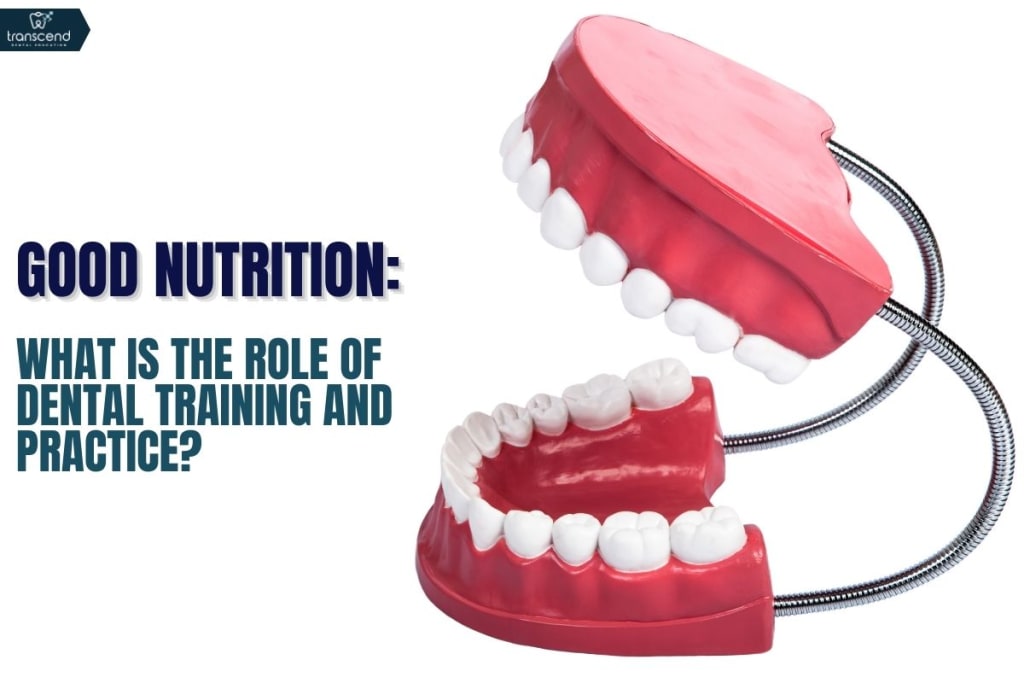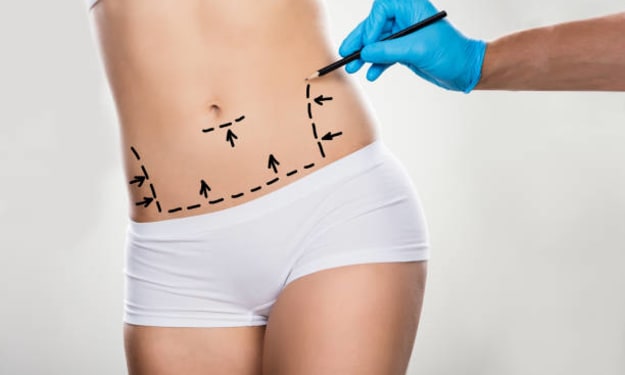Good Nutrition: What is the Role of Dental Training and Practice?
There is a multidirectional relationship between diet and nutrition and oral health

Diet and nutrition are huge powerhouses of oral wellbeing and can influence the development and growth of oral illnesses and conditions like caries, periodontal infection, erosion, and others. Nutrition can be characterized as the micro (vitamins and minerals) and macro (sugars, protein, and fat) nutrition as they identify with the body's dietary requirements, diet alludes to the particular food varieties devoured. The relationship that eating regimen and nutrition have with oral wellbeing is bidirectional, as compromised respectability of the oral pit can likewise impact a person's utilitarian capacity to eat. What is the impact of nutrition on dental health and why it is viable in dental training?
In your dental training, one of the principal things you will learn about with regards to dental hygiene is that food sources high in sugars and starches increase acid production, which consumes tooth enamel and causes tooth rot. There are some secret sources of starches many individuals don’t know about, like in alcohol, and secret sugars like in rice, which can be the reason for cavities. Most of the times problems are brought about by eating an excessive number of these food varieties continually, yet in different cases, it is a lack of oral hygiene which permits these sugars and starches to consume your teeth.
Nutritional Counselling in Dental Training and Practice
Since the fundamental impacts of diet are of the best significance when the teeth are growing, dental experts might start with women who are pregnant to guarantee that their eating regimen incorporates the proteins, nutrients, calcium, and phosphorus required for the growth of solid tooth buds. This will start or enhance the inclusion of other wellbeing experts following the pregnancy. The following stage should be to empower breastfeeding as the ideal method for meeting the newborn child's nutritional prerequisites and developing the maxillae while keeping away from the risk of premature decay. If the mother should decide to bottle feed her child, the dental experts should give guidance on the best way to stop the harmful impacts of caries.
Subsequently, from the age of a half year, the kid might start utilizing a training cup rather than a feeder, restricting the time that the teeth are in touch with fluids. Nutritional guidance should proceed after the teeth show up to enhance great dietary patterns and the health of the whole masticatory system. Assisting parents with picking the best food varieties for their kids and sharing with them the information they need to keep up with dental health and stay away from the development of plaque can have critical advantages. If they become familiar with smart dieting directly from the beginning, children will be more averse to losing their child teeth prematurely and less abandoned to caries in adulthood.
Nutrition and Dental Caries
Dental caries is an illness where the acid delivered by oral bacteria disintegrates enamel or dentin in a particular area. During the dental training, the experts are taught strictly about how the lack of nutrition can directly impact dental caries. Acid is created by the fermentation of bacteria of dietary sugars. Oral bacteria cannot agitate proteins, fats, or non-nutritive sugars like aspartame and sucralose. As such, starches are considered as cariogenic, while proteins, fats, and non-nutritive sugars are known as non-cariogenic.
Dietary carbs are at risk for maturation including sugars, starches, and hydrolyzed starch products. 3 Common dietary sugars are glucose, fructose, sucrose, and lactose. Sugars are normally added to improve the taste, and sweetened beverages, baked items, candies, and different food sources. Starches are long saccharide chains produced using sugars, found in grains, vegetables, and baked items.
Transitional carbs delivered by the hydrolysis of starches are likewise fermentable by oral bacteria. Hydrolysis—the separation of huge carbs into little sugars through the inclusion of water gradually cuts off the link of starch particles. This causes fewer saccharide units per particle. Hydrolyzed sugars are called modified starches, oligosaccharides, and maltodexrins on food tags.
The Bottom Line
There is a multidirectional relationship between diet and nutrition and oral health. An irregularity of nutrients can impact overall oral health, like periodontal sickness and dental caries. Alternately, oral issues can influence patients' capacity to devour a satisfactory eating routine. Hence, dental experts should incorporate diet and nutrients as a part of dental training and clinical assessment for ideal oral health.





Comments
There are no comments for this story
Be the first to respond and start the conversation.